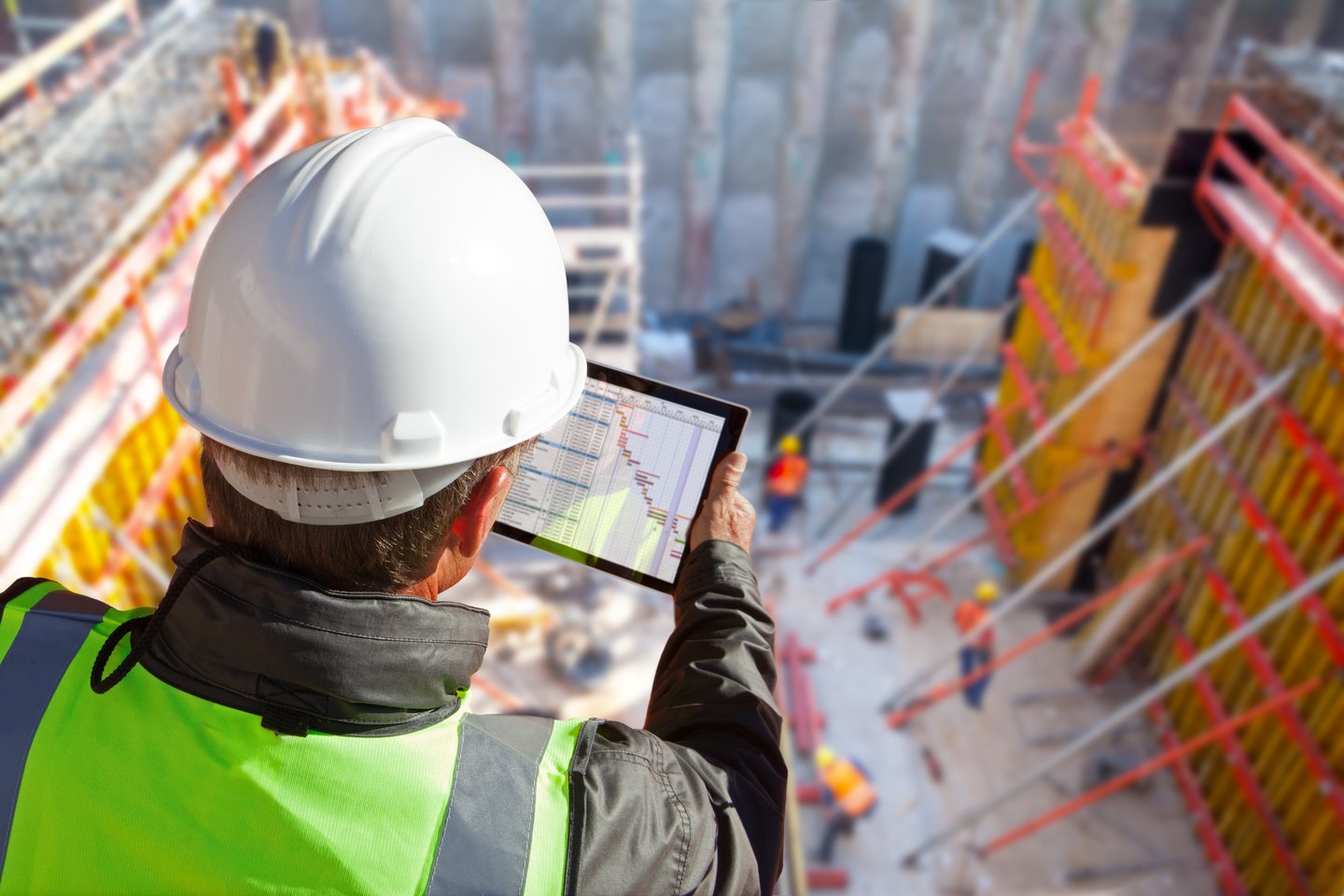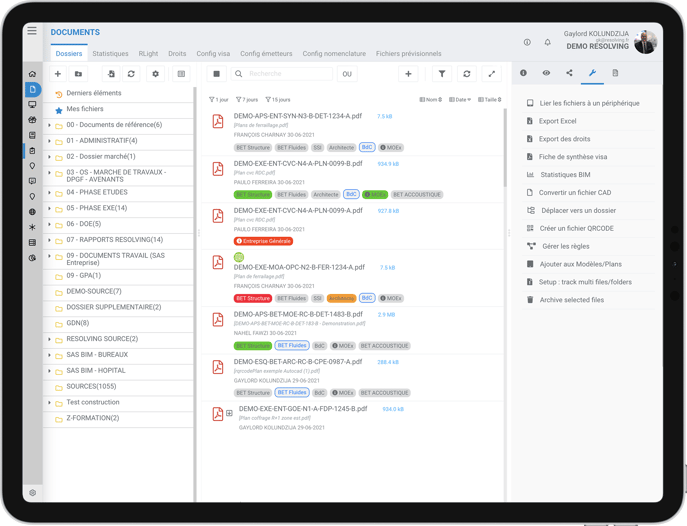Published on
What are the takeaways from practices introduced during COVID-19?

For two years, the COVID-19 pandemic made a major impact on the construction sector. According to Eurostat Statistics Explained, the industry was down -25.9 % in March and April 2020 in Europe. Lockdown measures, at the time, were increasingly strict, gradually bringing sites worldwide to a halt. To cope with the situation, contractors had no other choice but to be innovative in their way of working. Many of them opted for the digitisation of services and processes.
These efforts paid off, since, according to the French Ministry for Ecological Transition, between February 2021 and January 2022, more than 470,000 housing units were built throughout the country, i.e. 20.3 % more than in the previous year. It seems that, for now, contractors are dealing better with COVID. Let’s look at the actions implemented over this period.
The impact of COVID-19 on the construction sector
.jpeg?width=598&name=AdobeStock_222611330%20(1).jpeg) The construction sector felt the full weight of the consequences of the first lockdown linked to the COVID-19 pandemic. The start of the pandemic had a particularly strong impact on jobs and the activity itself. Several businesses had to resort to furlough measures, and, over that same period, activity fell by 75 %.
The construction sector felt the full weight of the consequences of the first lockdown linked to the COVID-19 pandemic. The start of the pandemic had a particularly strong impact on jobs and the activity itself. Several businesses had to resort to furlough measures, and, over that same period, activity fell by 75 %.
To return to growth, contractors have had to adapt, showing resilience and finding innovative solutions. To deal with the different health protocols, they also had to organise themselves in the field to resume their activity safely while taking on board precautions set down by the OPPBTP (Organisme Professionnel de Prévention du Bâtiment et des Travaux Publics - Professional Organisation for Safety in Building and Public Works). The OPPBTP advises contractors on best practices to reduce COVID-19 contamination risks on building sites.
Likewise, many contractors have experienced supply problems, particularly for their building materials. These complications delayed sites and therefore deliveries. Luckily, the French government supported the sector by setting up industrial mediation and a freeze on late penalties.
In order to reduce the impact of COVID-19, contractors took advantage of the situation to proceed with their digital transformation. Digitisation has become one of the most reliable ways to stop the paralysis of the sector.
Focus on practices introduced during the health crisis
Generalisation of the 15 minute safety check
The 15 minute safety check is a concept that originated in the UK and the US several years ago. Reminder: the 15 minute safety check is a short meeting where the employer needs to transmit appropriate health and safety instructions to employees.
Staff must be informed and made aware of risks incurred and protection measures to be set up. The 15 minute safety check is a means of communicating on occupational risk subjects. It is part of a prevention policy and helps develop a safety culture. It provides the opportunity to remind people of rules and improve practices while putting across key messages.
Before the COVID-19 pandemic, the 15 minute safety check was not rigorously set up by construction contractors. During the pandemic, however, this measure became essential and automatic. Discussions gave the opportunity to approach daily issues amidst the coronavirus backdrop. For this, contractors could use different media (video, slides, educational booklet, etc.) or set up checklists like the ones proposed by Kairnial in its “forms and inspections” module, for example.
Managing the supply chain
During the COVID-10 pandemic, several sites were affected by repetitive interruptions in the supply chain. Some factories experienced long closing periods and lead times were extended due to travel restrictions and bans.
During the first lockdowns, these interruptions in the supply chain had a negative impact on the sector. There was a shortage in raw materials - steel, tiles, reels, etc. - as well as in building materials and supplies needed to move forward with the various orders.
To tackle these problems, several contractors had to set up specific contractual arrangements, giving them access to financial resources and delivery extensions. The government also had to show flexibility. Generally speaking, structures had to anticipate their material requirements and review their delivery frequencies. In short, it was necessary to rethink the whole business organisation and set up new foundations.
The increase in digital collaboration
To return to a normal level of operation despite the health crisis, contractors have had to improve their processes and operations. Many of them have wanted to adopt a more efficient approach and more fluid communications solutions, by opting for digital collaboration. Technology is in fact an excellent means to move forward by virtually bringing together all stakeholders on the same site.
Organisations have adopted applications used while in or out of the office, which allow close monitoring of a project’s progress at all times. Others have opted for the Kairnial equipment module to identify all resources present on a site in order to obtain remote visibility of resources present or missing to move forward on a project. To sum up, work needs to be flexible and doable remotely.
The importance of digitisation in the sector

Digitisation of the sector, ultimately, was one of the most effective ways to continue activities during the pandemic. This digital transformation also continued once Covid-related restrictions had been lifted. Contractors have found the value of digital technology to guarantee sustainability of their activity.
Digital technology is now used to synchronise flows, order materials or even manage soil and waste. BIM platforms are used to support professionals and effectively organise tasks. Building information modelling tools are used to give an overview of constructions. Solutions are perfect to save time and increase efficiency.
While the COVID-19 pandemic has highlighted new recommendations to be implemented for workplace safety, it has also demonstrated that digital technology is really a necessity and that it shall become essential in the next few years. At Kairnial, we have understood this and have thus developed our own digital tools. Our “form and inspection” module will allow you to digitise your QHSE (quality, hygiene, safety and environment) and HSE (health, safety and environment) processes through configurable forms connected to localised equipment. For more information on this subject, please contact our business experts!
See more information on digital security inspections

